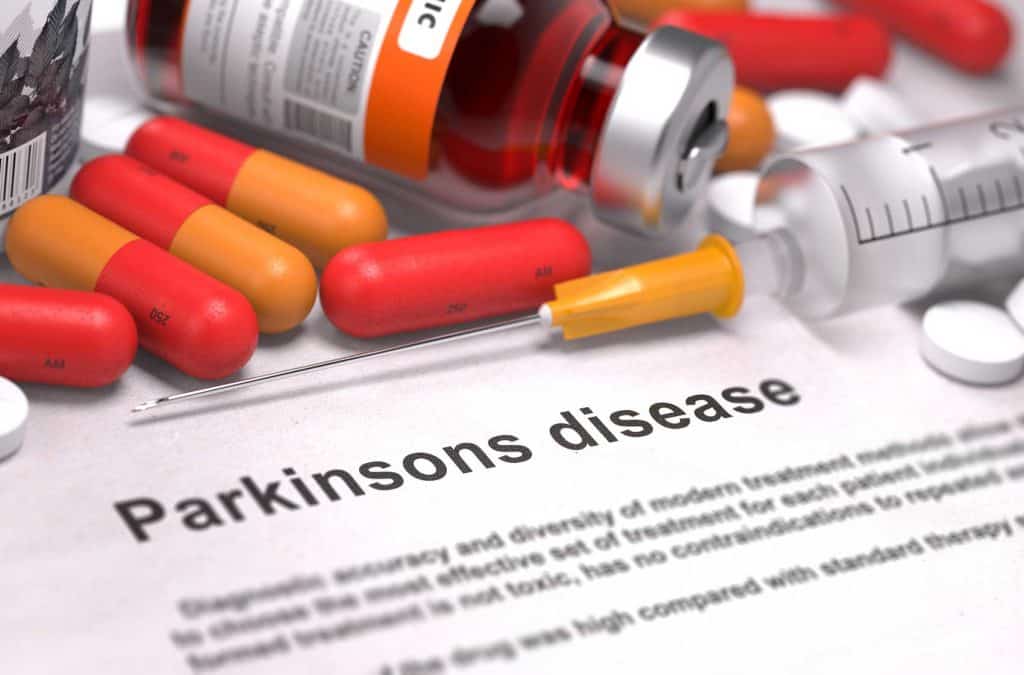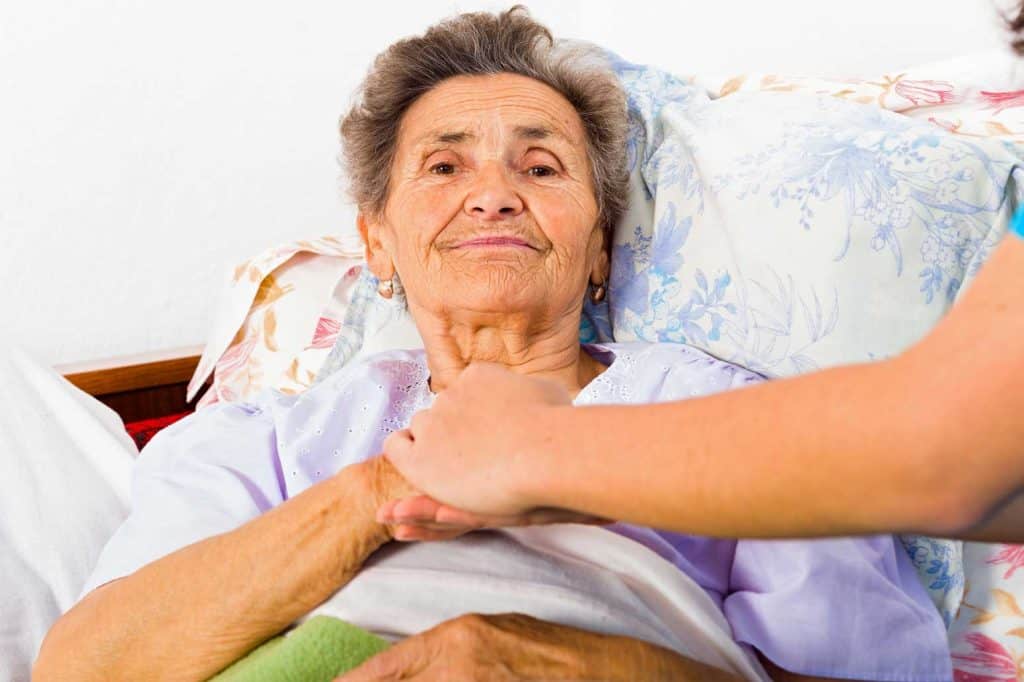
Parkinson’s Disease is a degenerative neurological condition that affects the body’s control of an individual. According to Parkinson’s Australia, about one in every 340 Australians has Parkinson’s Disease. Estimates of 100,000 people were recorded having the disease with 38 individuals diagnosed every day.
One thing scientists note is that Parkinson’s Disease has a reciprocal relationship with sleep disorders. The lack of sleep serves as a symptom of the disease; some include insomnia, restless leg syndrome, nocturia, and sleep apnea among many others.
What is Parkinson’s Disease
Parkinson’s Disease is a progressive brain disorder that causes the substantia nigra (nerve cells of the brain) to die. The nerve cells belong to the part of the brain involved in body mobility and control.
It is due to this reason why individuals who have Parkinson’s Disease show irregular body restlessness such as shaking, tremor, or fidgeting. There is no cure for the disease but symptoms can be managed with various treatments and therapies.
Causes of Parkinson’s Disease
It remains unknown why people get Parkinson’s Disease. Scientists believe the illness is a mix of various factors from genetic conditions to toxin exposures. It’s not possible to detect Parkinson’s as the disease does not always run in the family.
Some findings, however, see that men are twice as likely to get the illness. Moreover, Parkinson’s is more prevalent in older people as they succumbed to neurological degeneration.
Possible causes may include:
- Exposure to harmful toxins and chemicals
- Brain injury or head trauma
- Hereditary
Symptoms of Parkinson’s Disease
The disease shows various symptoms at different severeness. The ones mentioned below are the more common ones:
- Tremors or shaking of the head, arms, or legs
- Stiffness of trunk, legs, and arms
- Slowed movement or difficulty in mobility
- Difficulty in coordination and balance
- Trouble speaking or eating
- Stress, anxiety, and depression
- Stomach pains and constipation
- Loss sense of smell
- High blood pressure
- Lethargy
Sleep-related symptoms are shown below:
- Insomnia
- Hypersomnia
- Restless legs syndrome
- Nocturia
- Sleep apnea
- Hallucinations or vivid dreams
- Body pain or low mobility when sleeping

Sleep problems for those with Parkinson’s Disease
People with this disorder usually experience symptoms which may render it challenging for them to do everyday work. Rest is one of our most important requirements and people with Parkinson’s Disease also suffer sleep issues due to the condition’s nature.
Medications and therapies are used for treating problems with sleep. Sleep-related problems include insomnia, restless tremors in the legs, nocturia, and sleep apnea. Moreover, individuals with Parkinson’s may experience hallucinations and will act it out, thus, leading to further injuries.
Lethargy, fatigue, and daytime sleepiness may often be a concern throughout the morning.
Treatment for Parkinson’s Disease
There’s no cure for Parkinson’s Disease, but carers and loved ones can help manage symptoms of the patient. When it comes to treating the disease, different measures are used.
Medications
Medications can be used to manage the disease. People with Parkinson’s Disease in Australia usually avail of prescriptions for dopamine levels to reach the brain and stimulate it. Some of these are levodopa, dopamine agonists, glutamate antagonist, and anticholinergics.
Physiotherapy
Physiotherapy helps improve muscle tone, range of motion, coordination, balance, and mobility. It boosts muscle strength that helps curb tremors. The general purpose is to enhance patient independence, health, and safety, thus, improving the quality of life and sleep.
Surgery
In certain cases, brain surgery might need to be performed such as in the case of severe tremors or restlessness. If medication is not effective in controlling involuntary movements, it might be best for surgery. Deep brain stimulation has become popular recently. It generates electrical currents to disrupt signals that cause tremors. However, it doesn’t cure Parkinson’s Disease.
Self-help measures
There are self-help measures that can be practiced to improve the quality of life of someone who has Parkinson’s Disease such as eating a nutritionally-balanced diet, exercising, and sleeping soundly at night.

Sleep tips for people with Parkinson’s Disease
Since other medicines prescribed to cope with PD may result in sleep disturbance, you should consult your doctor about possible alternative medications to avoid sleep interference.
For people with Parkinson’s, sleep disruption can also trigger depression. Depression may contribute to exhaustion, decreased physical and social activity, and an excessive and inappropriate propensity to sleep. You can address these issues with your doctor if they continue.
Watch what you’re eating
Eating heavily at night can induce insomnia. At best, you should stop eating two to three hours before bedtime. Avoid food that may cause indigestion such as red meats, spicy foods, and big desserts. If you find your stomach rumbling at night, snack on light food such as fruits and biscuits.
Avoid caffeinated drinks and stimulants
Caffeine keeps you awake, so avoid caffeinated drinks for four to six hours before going to sleep. Likewise, alcohol can increase awakenings and decrease sleep quality at nighttime. Similarly, one should refrain from smoking too close to sleeping time because it inhibits how to sleep better at night.
Get your daily dose of Vitamin D
Getting some sunshine can balance your circadian rhythm. Lighting can play a huge role in your sleep. Sunlight can promote alertness and suppresses the melatonin hormone, thus, making you awake during the daytime. If you’re feeling sleepy, take a walk or move your desk a little bit closer to the window.
Change your sleep environment
Your sleep environment, a.k.a., the bedroom, itself can put a strain on your sleep. Is your room disorganized? You know what they say, “A messy room is a messy mind.” If your room is disorganized it can create tension and worries. You might not know it, but having too many items insight can disturb you. Clean and organize your bedroom for a worry-free sleep!
Keep electronics away
The blue light emitting from your gadgets suppresses melatonin and keeps you awake 20 minutes more, according to studies. When you’re in the bedroom, turn off all notifications from work and avoid glancing on your emails as much as you can. Shut your electronics off at least 30 minutes before bedtime. What’s more, keep your mobiles away at least 14 inches from your face.
Maintain and invest in quality bed products
Your bed might be the culprit on how to sleep better at night! Is the mattress soggy? Is the frame creaky? Are your pillows making your head itchy? Invest in quality products at Solace Sleep for a good night’s sleep. We have a collection of mattresses, bed frames, and adjustable beds that will improve sleep quality by reducing lower back pain, lumbar, and spine stiffness.
Exercise regularly
Exercising in the morning can increase alertness which stimulates our energy. Our happy hormones, as well as, adrenaline and epinephrine, pump up the day and prepare our bodies for sleeping at night. According to PubMed, exercise can reduce insomnia, anxiety, and night awakenings.
Instill bedtime routines
Bedtime routines are pre-sleep habits that you can instill to help you relax and prepare for sleep. Relaxation techniques include taking a hot bath, reading a book, meditating, drinking tea, or listening to soft music.
Keep regular sleep-wake cycles
Being consistent with your sleeping hours can improve sleep quality in the long run. Irregular hours can set off your circadian rhythm and hormones. Not to mention, it’ll compromise your metabolism, which left untreated, may lead to obesity. If you’re struggling with waking up in the morning, set an alarm before going to bed.
Keep naps short and early
Power naps are shown to boost brain function and productivity. However, naps taking more than 20 minutes and done late in the afternoon can have detrimental effects on how to sleep better at night.



